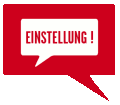German Court Says Professor Was Wrongly Arrested Under Terrorism Statute, but Retains Charges Against Him
Germany's highest court has overturned the arrest warrant of a Humboldt University academic who was detained for more than three weeks this past summer on suspicion of conspiracy with an alleged terrorist group accused of arson attacks against German military vehicles.
Andrej Holm, a sociologist specializing in critical research on urban gentrification, was arrested in late July on a warrant issued by Germany's federal prosecutor's office (The Chronicle, August 20). The warrant said that Mr. Holm had met with members of the suspected terrorist group, which goes by the name "militant group," in "conspiratorial circumstances." It cited as evidence against him his alleged involvement in the "resistance mounted by the extreme left wing" at an economic summit attended by world leaders in Heiligendamm, Germany, in June.
Mr. Holm and another academic, Mathias B., a political scientist at the Free University of Berlin, were charged under Section 129a of Germany's penal code, a provision dating from the 1970s, when attacks by groups like the Red Army faction sparked widespread terror fears across Germany.
Academics Respond to Arrests
Section 129a has been controversial since its enactment. An open letter signed by hundreds of academics around the world says that the statute is so broadly written that it allows for the criminalization of critical academic research.
"Through these constructs, every academic research activity and political work is presented as potentially criminal -- in particular when politically engaged colleagues who intervene in social struggles are concerned," the letter said. "This is how critical research, in particular research linked with political engagement, is turned into ideological ringleadership and 'terrorism.'"
Mr. Holm was held in solitary confinement before he was released on bail on August 22, a move the federal prosecutor swiftly moved to reverse by lodging an appeal. Last week the federal court in Karlsruhe ruled against that appeal and also said that Mr. Holm's original arrest was unfounded.
But the court did not dismiss the charges against Mr. Holm. In its ruling, it said that the evidence showed he was involved in Berlin's "extreme-left scene" and had had "conspiratorial contact" with at least one member of the alleged militant group. The court said, however, that the prosecutor had failed to demonstrate a "strong suspicion" of Mr. Holm's membership in the group, which is the threshold required for initiating heightened surveillance of suspected terrorists.
Volker Eick, a doctoral candidate in political science at the John F. Kennedy Institute of the Free University of Berlin, has helped to organize the worldwide solidarity effort in support of the two academics. He said the court's ruling is merely a "Pyrrhic victory" that leaves Mr. Holm's future uncertain and his career compromised. "It is still unclear whether or not he will be charged," Mr. Eick said.
Status of Militant Group Questioned
The federal court said in its ruling that it will examine the question of whether the militant group in question is in fact a terrorist organization, but that it will not decide the issue before November 5. Much hinges on the court's eventual assessment, said Mr. Eick, because the charges against Mr. Holm, Mathias B., and others who were accused of them all flow from the alleged militant group's status as a terrorist organization.
Regardless of the outcome of the court's inquiry, the federal prosecutor's actions have already had a chilling effect on academic research, says Margit Mayer, a professor of political science and North American studies at the Free University of Berlin.
"I just had some students who came up for their final master's exams, " she said. "Some of them wanted to focus on gentrification. They came into my office hours and they were very concerned. They said, 'I don't know if I can choose this topic anymore. I don't want to endanger myself.'"
Several academics, including Mr. Eick, are among the approximately 20 people who have been subpoenaed in the investigation.

